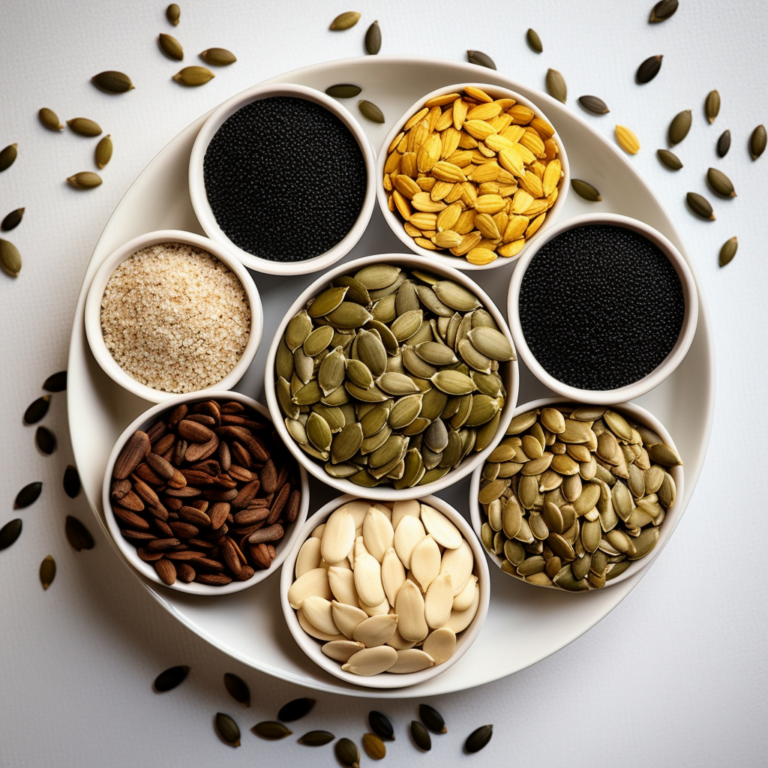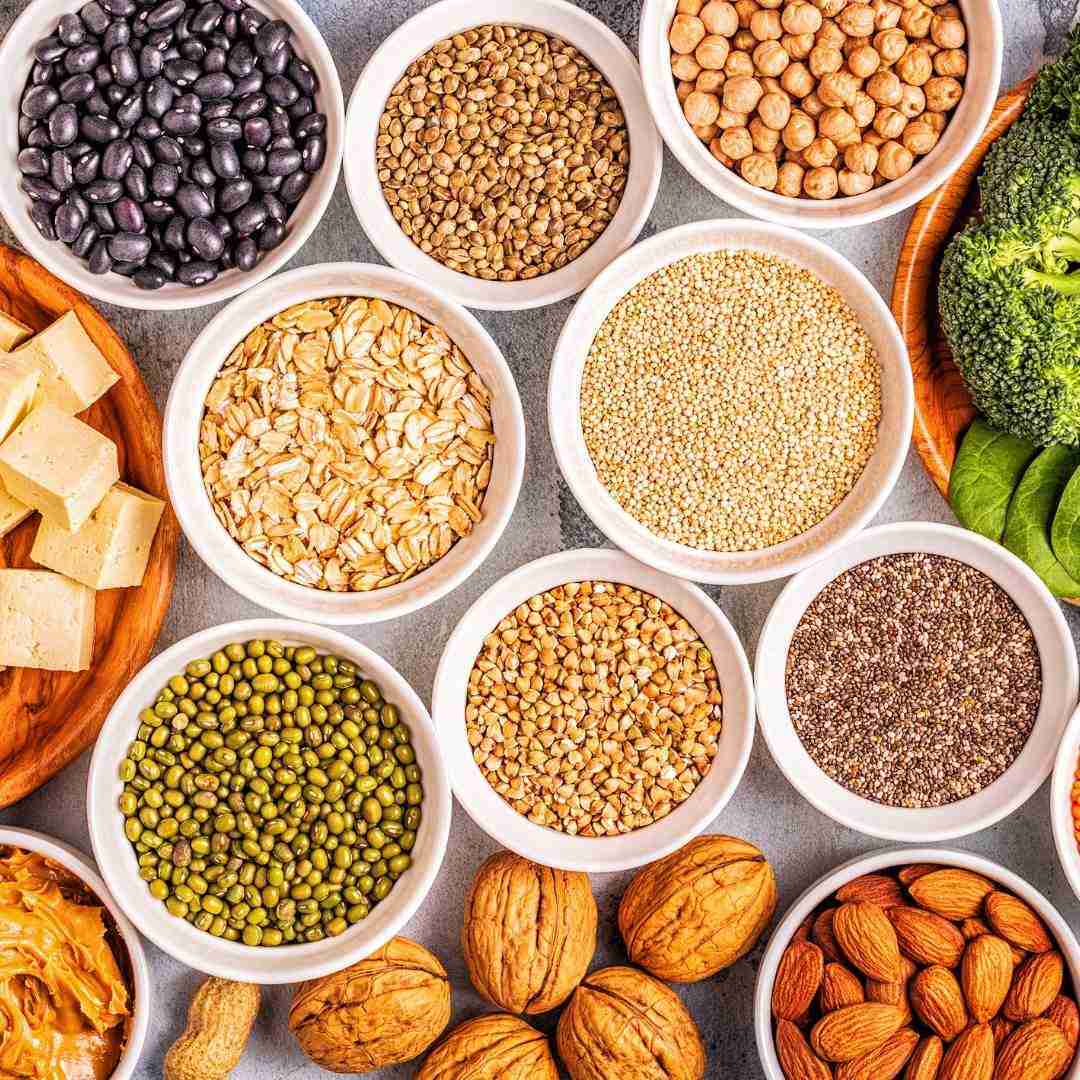The quest for cognitive health and sharp memory spans across various domains, from mental exercises and adequate sleep to a balanced diet. Among the dietary options, seeds stand out as nutrient-dense powerhouses that offer myriad benefits for brain health. Incorporating certain seeds into your diet can provide essential nutrients that support cognitive function, protect against neurodegenerative diseases, and enhance memory. In this comprehensive article, we will delve into eight such seeds, exploring their benefits, nutritional profiles, and ways to incorporate them into your daily diet.
1. Sesame Seeds
Nutritional Profile
Sesame seeds are rich in healthy fats, protein, and various vitamins and minerals. They are particularly high in magnesium, calcium, iron, and zinc, and contain significant amounts of vitamin B6 and vitamin E. These seeds also boast powerful antioxidants, such as sesamin and sesamol.
Brain Benefits
Sesame seeds are beneficial for brain health due to their rich antioxidant content, which helps protect brain cells from oxidative stress and damage. The presence of magnesium aids in nerve function and muscle contraction, while vitamin E serves as a potent antioxidant that prevents cognitive decline.
How to Incorporate Sesame Seeds
Sesame seeds can be easily incorporated into your diet by sprinkling them on salads, mixing them into yogurt, or adding them to baked goods. Tahini, a paste made from ground sesame seeds, is another versatile option that can be used in dressings, sauces, or as a spread.
2. Chia Seeds
Nutritional Profile
Chia seeds are a nutritional powerhouse, packed with omega-3 fatty acids, particularly alpha-linolenic acid (ALA). They are also high in fiber, protein, calcium, magnesium, and various antioxidants.
Brain Benefits
The omega-3 fatty acids in chia seeds are crucial for brain health, as they help reduce inflammation and support cognitive function. The antioxidants present in chia seeds protect brain cells from damage, while their high fiber content aids in regulating blood sugar levels, providing a steady supply of energy to the brain.
How to Incorporate Chia Seeds
Chia seeds can be added to smoothies, oatmeal, and yogurt, or used to make chia pudding. They can also be sprinkled on top of salads or incorporated into baked goods for an added nutritional boost.
3. Flaxseeds
Nutritional Profile
Flaxseeds are an excellent source of omega-3 fatty acids, especially ALA. They are also rich in lignans, fiber, protein, and various vitamins and minerals, including magnesium, phosphorus, and vitamin B1.
Brain Benefits
The omega-3 fatty acids in flaxseeds support brain health by reducing inflammation and promoting healthy blood flow to the brain. Lignans, which are plant compounds with antioxidant properties, help protect brain cells from oxidative damage. The high fiber content of flaxseeds also aids in maintaining stable blood sugar levels, which is essential for optimal brain function.
How to Incorporate Flaxseeds
Flaxseeds can be added to smoothies, cereals, and yogurt, or used as an egg substitute in baking. Ground flaxseeds are more easily absorbed by the body, so it is recommended to consume them in this form.
4. Pumpkin Seeds
Nutritional Profile
Pumpkin seeds, also known as pepitas, are packed with essential nutrients, including magnesium, iron, zinc, and copper. They are also high in antioxidants and healthy fats.
Brain Benefits
Magnesium plays a critical role in brain health by supporting neurotransmitter function and protecting against cognitive decline. Zinc is essential for nerve signaling, while iron is crucial for oxygen transport to the brain. The antioxidants in pumpkin seeds help prevent damage to brain cells and reduce inflammation.
How to Incorporate Pumpkin Seeds
Pumpkin seeds can be eaten raw or roasted, and they make a great addition to salads, granola, and trail mixes. They can also be blended into smoothies or used as a topping for soups and yogurt.
5. Sunflower Seeds
Nutritional Profile
Sunflower seeds are an excellent source of vitamin E, an antioxidant that helps protect brain cells from oxidative damage. They also contain significant amounts of magnesium, zinc, iron, and vitamin B6.
Brain Benefits
Vitamin E is crucial for brain health as it protects cells from oxidative stress. Choline, found in sunflower seeds, is essential for the production of acetylcholine, a neurotransmitter involved in memory and cognitive function. Magnesium supports nerve function and helps reduce stress, which can impact cognitive performance.
How to Incorporate Sunflower Seeds
Sunflower seeds can be eaten raw or roasted, and they make a tasty addition to salads, oatmeal, and yogurt. Sunflower seed butter is another versatile option that can be used as a spread or in baking.

6. Hemp Seeds
Nutritional Profile
Hemp seeds are rich in omega-3 and omega-6 fatty acids, in an optimal ratio that supports brain health. They also contain high-quality protein, fiber, and various vitamins and minerals, including magnesium, zinc, and iron.
Brain Benefits
The balanced ratio of omega-3 to omega-6 fatty acids in hemp seeds helps reduce inflammation and supports overall cognitive function. The protein in hemp seeds provides amino acids that are essential for neurotransmitter production and brain function. Additionally, the vitamins and minerals in hemp seeds support nerve function and protect against cognitive decline.
How to Incorporate Hemp Seeds
Hemp seeds can be sprinkled on salads, yogurt, and smoothies, or incorporated into baked goods. Hemp seed oil is another option that can be used in salad dressings and dips.
7. Quinoa Seeds
Nutritional Profile
Quinoa, often considered a grain, is technically a seed. It is a complete protein, containing all nine essential amino acids. Quinoa is also rich in fiber, iron, magnesium, and vitamin B6.
Brain Benefits
Quinoa’s high protein content provides amino acids that are vital for brain function and neurotransmitter production. Iron supports cognitive health by ensuring adequate oxygen supply to the brain, while magnesium aids in nerve function. Vitamin B6 is involved in the production of neurotransmitters that regulate mood and cognitive function.
How to Incorporate Quinoa
Quinoa can be used as a base for salads, added to soups, or served as a side dish. It can also be incorporated into breakfast bowls and baked goods for a nutritional boost.
8. Poppy Seeds
Nutritional Profile
Poppy seeds are a good source of calcium, iron, magnesium, and zinc. They also contain oleic and linoleic acids, which support brain cell structure and function.
Brain Benefits
The minerals in poppy seeds, such as calcium, iron, and magnesium, are essential for brain health. Calcium is involved in neurotransmitter release, while iron supports oxygen transport to the brain. Magnesium helps reduce stress and anxiety, which can impact cognitive performance. The fatty acids in poppy seeds support brain cell structure and function, contributing to overall cognitive health.
How to Incorporate Poppy Seeds
Poppy seeds can be used in baking, added to salads, or sprinkled on top of yogurt and oatmeal. Poppy seed dressing is another delicious way to incorporate these seeds into your diet.
Conclusion
Incorporating these seeds into your diet can significantly enhance brain health and improve memory. These seeds offer a simple and delicious way to support cognitive function and protect against age-related decline. Remember, a balanced diet, regular exercise, and mental stimulation are also key to maintaining a healthy brain.
Each of these seeds offers unique benefits and can be easily incorporated into a variety of dishes, making it simple to enjoy their brain-boosting properties. Whether you sprinkle them on salads, blend them into smoothies, or add them to your favorite recipes, these seeds provide essential nutrients that support brain health and cognitive function. So go ahead and make these seeds a regular part of your diet to keep your brain healthy and your memory sharp.
Ajigofarms is a reliable global agricultural purchase sourcing with profound expertise in the manufacturing, and exportation of food crops. We are tested, and trusted suppliers of all kinds of cash crops and food crops. Our constant supply chain solution makes exporting easy, quick, and safe, we are identified with timeliness and meeting up with deadlines. Regardless of the region you are located in worldwide, you can reliably order your Agric products and be rest assured of successful delivery.




